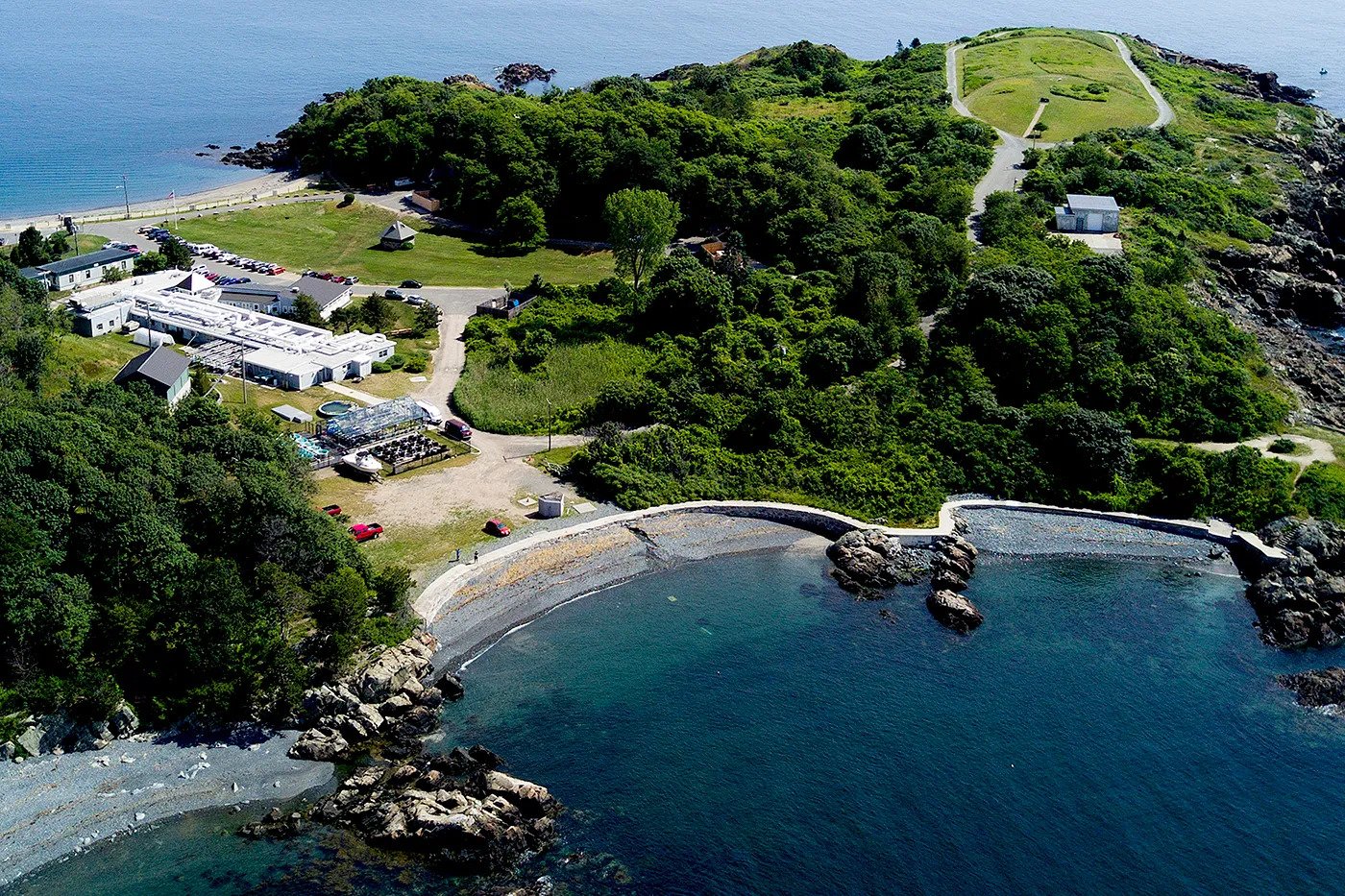A Superior Court judge has ruled in Northeastern’s favor regarding the university’s proposed expansion of its Marine Science Center in Nahant, Massachusetts.
The ruling on Tuesday deals a blow to the town of Nahant and the nonprofit Nahant Preservation Trust, whose three-year legal dispute has sought to block the research expansion and take part of the university’s property by eminent domain.
The property was not designated for preservation, as the town had contested, according to the judge’s ruling.
“Northeastern University has not dedicated, and the public has not accepted, the land on top of and to the east of Murphy Bunker at East Point, Nahant, Massachusetts, to the public for use as an ecological preserve and for passive recreation,” Superior Court Judge Jeffrey Karp wrote in a summary judgment filed on Tuesday.
Northeastern maintains a Marine Science Center on the coastal property it acquired in 1966 and has submitted plans to expand its environmental and sustainability research capabilities at the site. The university agreed to place a conservation restriction to permanently prevent future development of approximately 8 acres of existing open space on the Nahant campus.
Instead, last May, the town voted to take about 12 acres of open space from Northeastern by eminent domain. The move came despite an offer from the university to place the conservation restriction, at no cost to the town, on approximately 90% of the open space sought by the Board of Selectmen.
The Superior Court ruling moves Northeastern one step closer in its years-long effort to expand the marine center and advance environmental research, with particular emphasis on coastal sustainability.
“It’s progress. The court has clearly shut down one wrong-headed approach to stopping Northeastern at all costs,” said Ken Carangelo, a Nahant resident and former member of the town’s Finance Committee. “Unfortunately the town is still left with a legacy of litigation, while sea levels rise and seniors struggle for housing.”
Nahant Board of Selectmen estimate that eminent domain will cost the town $4.5 million to acquire the parcel planned for expansion. However, university officials estimate that the cost of the proposed taking would be substantially higher. A separate suit in Superior Court in which Northeastern is contesting the validity of the land taking and its valuation is also pending before Judge Karp.
The 8 acres of open space that would be preserved are located east of Murphy Bunker, which houses several of the university’s marine science research labs. Under the conservation restriction, the university would forgo its existing development rights on the area east of Murphy Bunker. Northeastern would also undertake an extensive environmental remediation program to eliminate invasive species and restore native biodiversity to the area. That open space is contiguous to Henry Cabot Lodge Park, which is owned by the town of Nahant.
The university has offered to grant the town of Nahant an easement to ensure continued public access to Canoe Beach from the adjacent municipal parking area. The conservation restriction and access easement would take effect following the completed expansion of the university’s Marine Science Center.
Northeastern acquired the former East Point Military Reservation in Nahant in 1966, after the town of Nahant declined to purchase almost 21 acres from the U.S. Department of Defense. At that time, the abandoned fort and surrounding areas were stripped of vegetation and left barren.
Since constructing the research center at the former military site, the university has improved the environmental conditions of the property and, among other activities, conducted ecological research that stands to benefit coastal communities such as Nahant.
As coastal communities have faced increasingly complex environmental threats, the Marine Science Center has been an active partner in developing solutions to help those communities be more sustainable and resilient.
Northeastern researchers in Nahant have studied the flood risks from man-made alterations to rivers, developed robotic mussels to understand the effects of rising ocean temperatures, and found innovative ways to monitor plastic waste that has made its way into the ocean.
The facility is also home to the Ocean Genome Legacy, a repository of more than 25,000 marine DNA and tissue samples built to preserve the genetic information of species that may one day go extinct.
Now, Northeastern plans to expand the facility in Nahant to provide researchers with state-of-the-art tools to enhance the impact of this critically important work.
In addition to the planned conservation restriction and Canoe Beach access easement, Northeastern previously offered the town a multimillion-dollar financial package to mitigate any impacts the Marine Science Center expansion project may have on town infrastructure, help fix the town’s water and sewer system, and assist the town with operating and capital budget needs.
The package also includes tuition scholarships for Nahant residents to attend Northeastern, funding for the town’s elementary school art and music program, scholarships for local elementary and high school students to attend the center’s Coastal Ocean Science Academy summer program, paid internships at the Marine Science Center for Nahant students, and free public lectures and films for residents.
Additionally, the university would fund a research program to help the town develop innovative solutions to combat climate change-related threats such as storm surge and sea level rise.
This article originally appeared on News@Northeastern.

